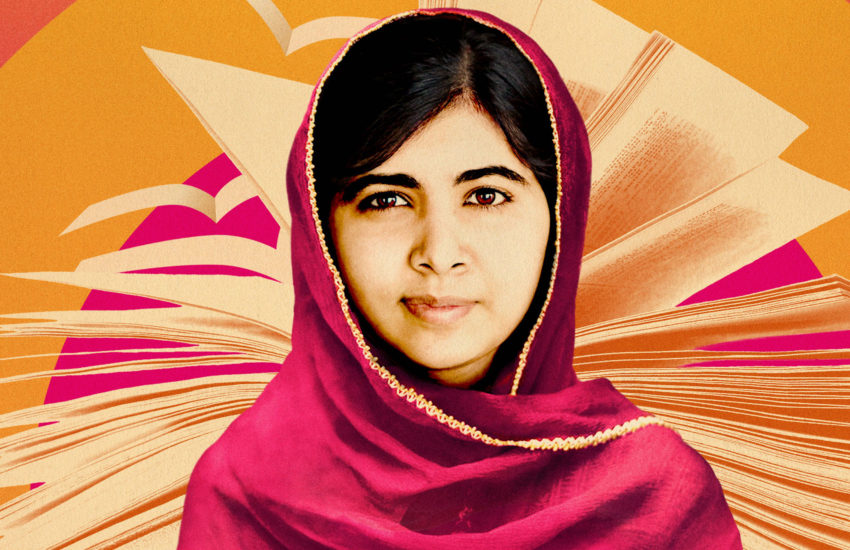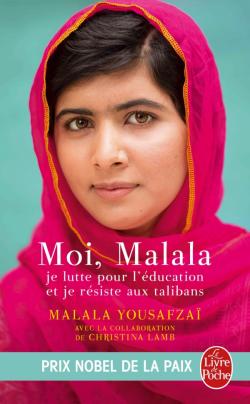Among memorable openings to books, it would be hard to find one more moving than the following: “I come from a country that was created at midnight. When I almost died it was just after midday.” Many will recognize these words as belonging to Malala Yousafzai, written at the start of her extraordinary memoir, published two years ago and already a classic of world literature, “I am Malala.”
Honored last fall with the Nobel Prize for Peace, making her at age 17 the youngest ever recipient of this award, Ms. Yousafzai is rightly acclaimed as someone who embodies the highest values and ideals of our shared humanity. Born in the Swat region of Pakistan, Malala became a champion of schooling for girls when she was 11 years old. The victim of a failed assassination attempt in October 2012, which led to a worldwide outpouring of solidarity on her behalf, Ms. Yousafzai managed to recover from a nearly fatal gunshot wound and is revered around the globe as an unusually gifted advocate for gender equality and the right to education for all.
A brilliant and beloved model for students
In her Nobel Prize acceptance speech last December, Ms. Yousafzai noted, “I have found that people describe me in many different ways. Some people call me the girl who was shot by the Taliban. And some, the girl who fought for her rights. Some people call me a ‘Nobel Laureate’ now. However, my brothers still call me that annoying bossy sister.” She went on: “As far as I know, I am just a committed and even stubborn person who wants to see every child getting a quality education, who wants to see women having equal rights and who wants peace in every corner of the world.”
It is surely such boundless humility and tireless courage in the service of those less fortunate than herself which are so endearing and uplifting to people on every continent, particularly those Malala’s own age. And if I begin my first blog of the new academic year with this brief evocation of Ms. Yousafzai’s remarkable life, I am doing so not just because she is such a brilliant and beloved model for students at the LFNY. I mention her because she was at the center of a once-in-a-lifetime event at the Asia Society last month in which with some of our own young people participated and which sheds much light on what makes our school so unique.
“Every time I think of courage, determination and power, I think Malala.”
First, the very fact that our students were able to hear Malala speak in person, by way of introduction to a documentary about her life, followed by a private showing of that film, was only possible because of the exceptional generosity of one of our parents (and trustees), who himself had the opportunity to attend this unique occasion, but worked to ensure that such a phenomenal experience would benefit those who matter most in the Lycée Français de New York community: our students. So it happened that 30 young women from LFNY were able to sit just a few rows away from the Nobel Peace Prize recipient, to hear her talk about the film “He Named Me Malala” in the company of her father, and to be the first members of the public to watch this wonderful documentary in person.
Second, this special event confirmed something quite distinctive about our students: the way in which we can always count on them to take full advantage of every learning possibility which comes their way and to do so in manner that reflects our mission of advancing global citizenship. Consider some of the thoughts our students shared after hearing Ms. Yousafzai speak. For Rhea, “Malala has been an inspiration for as long as I can remember. As a child, I read her blogs and even sent her messages hoping she would answer. I have always been advocating for her and her beliefs. Since I was twelve, every time I think of courage, determination and power, I think Malala.”
“We have the same age as Malala, but what have we done?”
Céline affirms, “I will never forget the electric feeling that rushed through me when Malala came on stage. I felt as though all of my work for gender equity had been substantiated. Malala, as the emblem of fourth wave feminism truly was outstanding. More importantly, she made herself appear real. She did not act aloof or entitled whatsoever. Her presence was humbling, while reassuring. Seeing how normal and humble she is gave me hope that I can have an impact in social justice as well.”
For Célèste, “As the film unfolded, I began thinking about the role I play in life and in society at large. We have the same age as Malala, but what have we done? This event made me realize a lot. It is critical to fight for what we believe. And talking is not enough; we must act.”
“I am not a lone voice, I am many.”
Sarah proposed to support Malala’s work by organizing visits by older LFNY students to the classes of their younger peers, “so as to remind them about the importance of education, about the sacredness of learning, about the tragedy of lacking access to school, about the privilege we have to receive an education when so many are less fortunate, and finally about the power of education as a tool for defending the freedom of all.”
Photos: LFNY students attend a private screening of Malala, at the Asia Society, on September 24, 2015. Credit: S. Lynch.
Or take Eloise, for instance, who suggested outreach from the Lycée Français de New York in areas of New York City which might not be as privileged as ours: “we wish to go to more underserved schools in the Manhattan area to create a kind of ‘mentorship’ between girls from the Lycée and girls from other institutions to show them the significance and weight that a college degree will have in their lives.” The list of ideas for action which the 2014 Nobel Prize for Peace laureate inspired in our students goes on. Malala Yousafzai once said, “I am not a lone voice, I am many.” With students like ours, we know that she is correct.
About the Author :
Sean Lynch was Head of School at the Lycée Français de New York from 2011 to 2018, after having spent 15 years at another French bilingual school outside of Paris: the Lycée International de St. Germain-en-Laye. Holding both French and American nationalities, educated in France (Sciences Po Paris) and the United States (Yale), and as the proud husband of a French-American spouse and father of two French-American daughters, Sean Lynch has spent his entire professional and personal life at the junction between the languages, cultures and educational systems of France and the United States. In addition to being passionate about education, he loves everything related to the mountains, particularly the Parc National du Mercantour.




